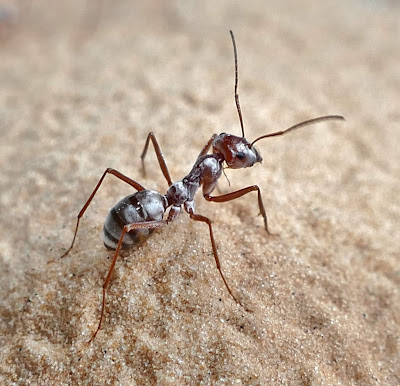Rat (Rattus norvegicus) ~ Community
i recently heard about an experiment done on addiction. Rats were placed alone in a cage with two water bottles. One water bottle contained normal water. The other was laced with an addictive drug. All of the rats in the study became obsessed with the laced water, and 9 out of 10 rats eventually killed themselves by overdosing.
Another scientist by the name of Bruce K. Alexander repeated this experiment in a social setting instead of solitary confinement. Rats are highly social creatures, and Alexander hypothesized that their behavior would be different if they lived in a group setting instead of in isolation. Alexander and his team got to work building the huge plywood complex. Alexander writes in his essay: “[We filled it] with things that rats like, such as platforms for climbing, tin cans for hiding in, wood chips for strewing around, and running wheels for exercise. Naturally we included lots of rats of both sexes, and naturally the place soon was teeming with babies. The rats loved it and we loved it too, so we called it ‘Rat Park’.”(1) They found that in ‘Rat Park’, adult males and females consumed much less addictive drugs than those in solitary confinement.
At the conclusion of his work, Alexander writes: “Our rats consumed much more morphine when they were isolated. This fact definitely undermined the supposed proof that certain drugs irresistibly cause addiction. But what does cause addiction? Why is there currently a flood of addiction to drugs and many other habits and pursuits? People do not have to be put into cages to become addicted – but is there a sense in which people who become addicted actually feel caged?” Answering this question would lead the young scientist to more in-depth studies of the issue. He later published a book which proves the resounding answer to his question to be: YES! (2) Humans do suffer higher levels of addictions when in isolation.
We don’t need the research to teach us about how awful longterm isolation can be, but it is indeed encouraging to see that the science supports what Christian philosophy has always inculcated.
Acts 19v18 describes believers as coming together in fellowship, “confessing and divulging their practices.”
Similarly, James 5v16 speaks of confessing our sins to one another “that you may be healed”.
Confession is an intrinsic part of community. i attended a sermon recently where the Pastor said, “The cost of concealment is always greater than the cost of confession.” So while living in community takes effort, and while being open with each other rarely comes naturally, the benefits far outweigh the cost.
(1) Addiction: The View from Rat Park, Bruce K. Alexander,Professor Emeritus, Simon Fraser University
(2) The Globalisation of Addiction: A study in poverty of the spirit, Oxford University Press, 2008
Image: My rat Martin! Isn't he handsome?



-5.adapt.945.2.jpg)

Comments